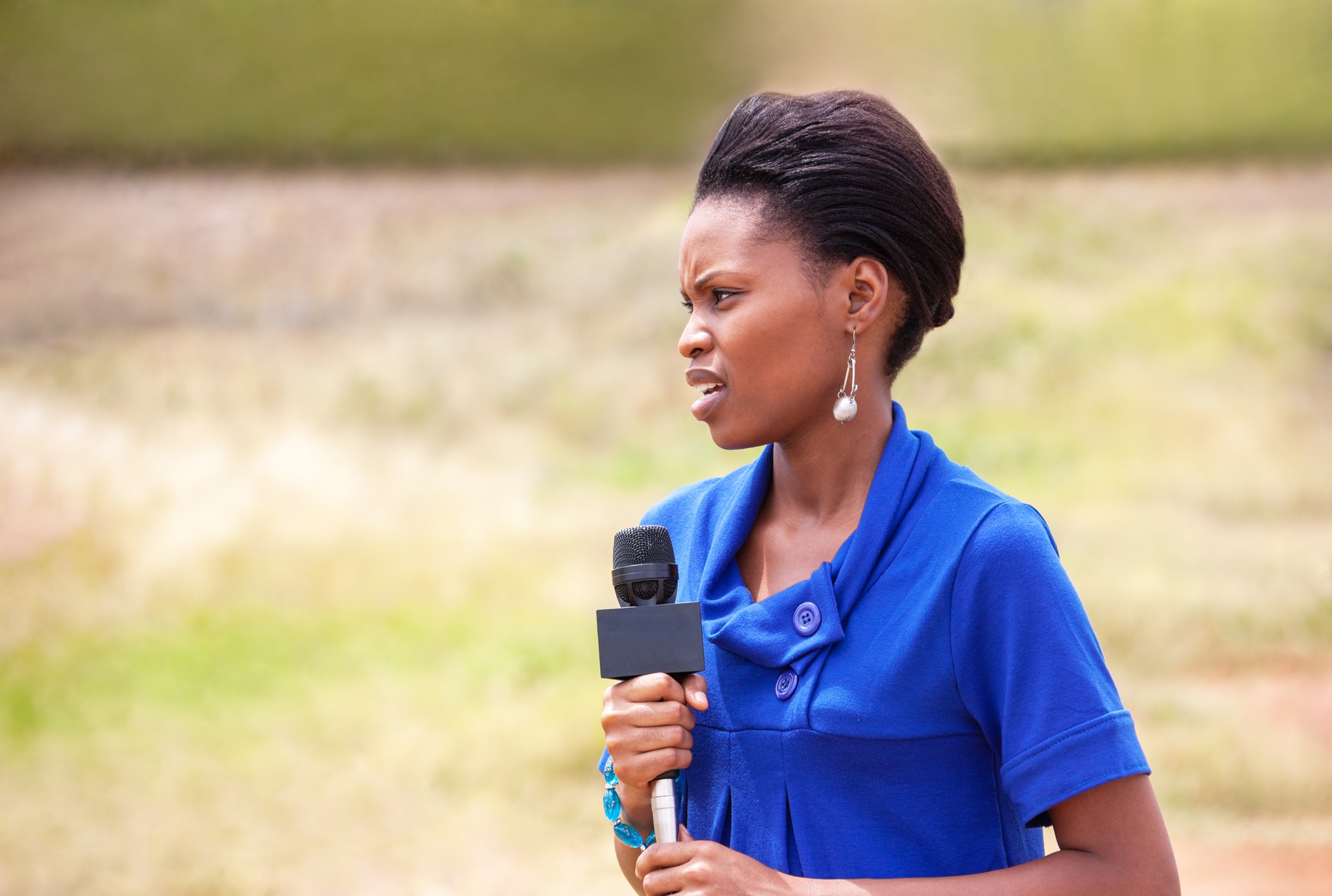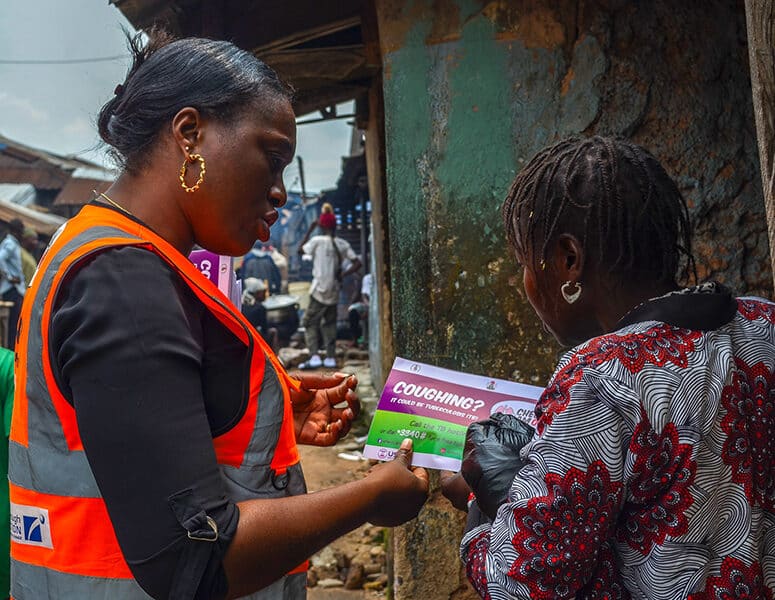The COVID-19 pandemic created an unprecedented global health crisis, accompanied by a massive spread of rumors, false information, and conspiracy theories that circulated quickly, particularly on social networks.
The role of journalists has always played an essential role in informing the public, maintaining transparent communication between authorities and citizens, and combating disinformation. But in this fast-paced crisis, it became clearer than ever that journalists needed to strengthen their skills in getting accurate information to the public while dispelling harmful speculation.
Lives depended on it.
As part of its work over four years, the Johns Hopkins Center for Communication Programs-led Breakthrough ACTION project held four different training sessions with journalists in Guinea, with the goal of making sure the public was armed with facts they could use to make decisions in the middle of a crisis.
“Faced with the challenge of constantly evolving information and disinformation, Breakthrough ACTION took on the role of improving the quality and reliability of journalism in Guinea and preparing journalists to face future challenges with renewed expertise and unwavering determination,” says CCP’s Amadou Korka Bah, a program officer for Breakthrough ACTION Guinea. “Not only has this helped programs design and implement rumor management strategies, but for future epidemics and pandemics, including all types of disease outbreaks.”
A new technical brief studying the results of the training program lays out five lessons learned from the COVID-19 pandemic, lessons that can be adapted to any public health emergency that may arise in the future. The brief is based on conversations with journalists who were trained as part of the CCP-led effort.
“The findings here aim to inform ideas and provide guidance for improving rumor management during emergencies for communication professionals working at the intersection of crisis management, journalism, and social and behavioral change and those working to improve access to reliable information and rumor management during pandemics,” the authors write.
Lesson 1: Confidence in expertise
The journalists stressed the need for relying on trusted public health institutions and organizations, like the Agence Nationale de Sécurité Sanitaire in France, the United States Centers for Disease Control and Prevention or the World Health Organization. They learned that to guarantee the accuracy of information, there is no substitute for experts. Seeking expertise has reduced the spread of false information and increased public confidence in official channels of communication.
Action: Journalists must systematically consult and quote public health experts in their reports to guarantee the accuracy and credibility of the information they disseminate.
Lesson 2: Fact Checking
Cross checking information from multiple reliable sources is vital in combating misinformation and guaranteeing the reliability of the information disseminated. By triangulating data, journalists were able to confirm the authenticity of information before publishing it, minimizing the risk of rumors spreading. Also, journalists need to be sure not to give equal weight to proven facts and matters of opinion.
Action: Before publishing any information, journalists should always check the facts with several independent and reliable sources to confirm their accuracy and minimize the risk of spreading rumors.
Lesson 3: Using official sources
Using official information sources directly, rigorously checking facts, and ensuring that the information disseminated is relevant and crucial to the intended audience. Journalists stressed the need for using sources that are authorized to provide information and have an official mandate to do so. They also learned to distinguish between reliable and unreliable sources, which was essential in maintaining the credibility of their reports.
Action: Journalists must establish strict fact-checking protocols, giving priority to official and reliable sources before disseminating any information.
Lesson 4: Transparency and timing
Disseminating information does not only require speed to be effective, it also needs to be accurate. Journalists highlighted how delivering the right information at the right time and avoiding premature publications avoids confusion. They also discussed the importance of transparency in communication, explaining how full disclosure of facts and processes has helped strengthen public trust.
Action: Journalists must carefully plan the publication of their news to ensure that media outlets disseminate them transparently and at the most appropriate time.
Lesson 5: Collaboration
The journalists identified collaboration as a key factor in the fight against misinformation. Participants valued partnerships with public health authorities and other credible sources to amplify reliable messages and reinforce the impact of the verified information. They also stressed the value of networking with other media outlets and organizations for sharing resources and information, helping create a unified and coherent response to disinformation.
Action: Journalists need to build and maintain strong partnerships with health authorities and other media to share resources, verified information, and cohesive messages to combat disinformation.
“Through the journalists’ commitment to accuracy, transparency, and collaboration, they have established a legacy of trust that will sustainably strengthen the foundations of responsible journalism in Guinea,” the authors conclude. “As Breakthrough ACTION draws its COVID-19 work in Guinea to a close, journalists return to their assignments with enhanced skills, transforming the landscape of health journalism in the country. Journalists involved in health can apply these lessons and actions to improve rumor management and strengthen access to reliable information during health crises while preparing for future epidemics and pandemics.”





